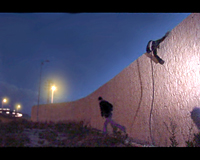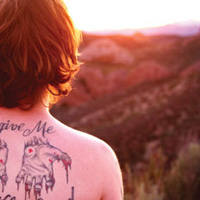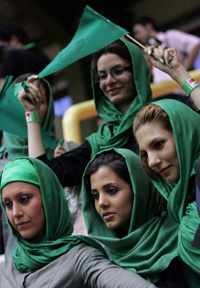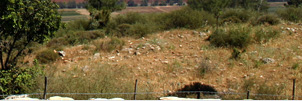A Theme by Theme Overview
As the years go by, the conflict in the Arab regions changes; the awareness and involvement of the young people who have nothing to lose has exploded. Because of all these movements, it seemed important to us that this year's presentation of the event should be viewed according to themes and not just country by country.
We chose to start the event with a couple of films looking at the borders between Jews and Arabs, Palestine and Israel: My Land and Susya. The awareness of each for the other has always been at the core of Middle East: What Cinema Can Do.
A focus on the Arab Spring was obvious. We will have the honor of being the first to preview the latest work in progress by Samir Abdallah, Au Caire de la Revolution, straight from the Place Tahrir. Zelal is the tidings of what happens to a people under a dictatorship, leading up to the Arab Spring.
We would love to say that we have fresh images from Syria, but that of course was not possible. Instead we present a slice of life in Damascus at a time when the country was included in George Bush's "axis of evil."
As for Lebanon, a strong feeling of intolerance –Muslims for Christians or vice versa, toward foreigners - has surfaced as the people went from war to war during the past decades. This is evidenced in Sayda, a Filipino woman married to a Lebanese man and in All for the Nation, which shows the catch 22 behind marital laws.
Two fiction features present the precarious position of Kurds in Iraq: Kick Off and Mandoo. War-torn Iraq is represented by two documentaries focusing on American soldiers and the devastating effects of war: On the Bridge and Goodbye Babylon.
Concerning Iran, many films have chosen to reconstitute the green movement in Iran following the elections of 2009. Retrospectively speaking, the images are full impact and clearly demonstrate where the Arab Spring sprouted from as seen in two features Chronique d'un Iran and The Green Wave.
Israel in all its contradictions: the theme Strangers in their Own Land looks at the discrimination of local minorities and their problematic; a universal theme that no country or region seems to be able to avoid. From the Samaritans to the Druze and Bedouins, they are told that their home is not their home.
And who is more oppressed than Women, yet they are at the forefront of many movements. Suha Arraf's film Women of Hamas takes us into the heart of the contradictions that women live, abide by, proclaim and yet rebel against.
Dare we laugh at everything? This is clearly a novel theme presented in a film entitled (No) Laughing Matter, as the director travelled through a Palestine refugee camp asking people to tell their favourite joke.
For Israel, Breaking the Silence presents four courageous testimonies by Israeli soldiers who speak out about their military service in the Occupied Territories and the incongruous "rules" they are expected to follow. The Human Turbine warms the heart; Israeli professionals put their talent to use in Palestinian villages helping them to obtain water, electricity…a life with dignity.
A separate entity, Jerusalem is consecrated with a series of shorts showing the city from both an Israeli and Palestinian point of view (Jerusalem Moments 2009 & 2011).
The theme Gaza revisits Operation Cast Iron in the poignant film Tears for Gaza, while others take us underground Into the Belly of the Whale by Hazim Bitar. Palestine further explores issues such as borders (Videomapping: Aida, Palestine), checkpoints, exile and water supplies (Interrupted Streams).
"Time for Outrage!" (Indignez-Vous) in the words of the 94-year old WWII survivor Stephane Hessel, who contributed to the drafting of the Declaration of Human Rights. Two films paint his portrait and underline his life's works.
Juliano Mer-Khamis lived the life of a mixed-marriage offspring: Israeli Jewish mother and Palestinian communist father. Revolutionary in his own existence, he continued his mother's work with the children of the Jenin Freedom Theatre allowing Palestinian youth to express themselves on stage. He was assassinated this past April. We pay tribute with several films by students of the Theatre.
Our aim is to inform and to break the stereotype images that people are habitually fed concerning the Middle East. We prefer to give voice to those who live there. In the words of Janine Halbreich-Euvrard, founder of the event (and author of the book "Israéliens, Palestiniens : Que peut le cinéma ?"), "Cinema can most certainly help to tumble down walls, be they made of steel or of prejudice and ignorance."
back to article list
As the years go by, the conflict in the Arab regions changes; the awareness and involvement of the young people who have nothing to lose has exploded. Because of all these movements, it seemed important to us that this year's presentation of the event should be viewed according to themes and not just country by country.
We chose to start the event with a couple of films looking at the borders between Jews and Arabs, Palestine and Israel: My Land and Susya. The awareness of each for the other has always been at the core of Middle East: What Cinema Can Do.
A focus on the Arab Spring was obvious. We will have the honor of being the first to preview the latest work in progress by Samir Abdallah, Au Caire de la Revolution, straight from the Place Tahrir. Zelal is the tidings of what happens to a people under a dictatorship, leading up to the Arab Spring.
We would love to say that we have fresh images from Syria, but that of course was not possible. Instead we present a slice of life in Damascus at a time when the country was included in George Bush's "axis of evil."
As for Lebanon, a strong feeling of intolerance –Muslims for Christians or vice versa, toward foreigners - has surfaced as the people went from war to war during the past decades. This is evidenced in Sayda, a Filipino woman married to a Lebanese man and in All for the Nation, which shows the catch 22 behind marital laws.
Two fiction features present the precarious position of Kurds in Iraq: Kick Off and Mandoo. War-torn Iraq is represented by two documentaries focusing on American soldiers and the devastating effects of war: On the Bridge and Goodbye Babylon.
Concerning Iran, many films have chosen to reconstitute the green movement in Iran following the elections of 2009. Retrospectively speaking, the images are full impact and clearly demonstrate where the Arab Spring sprouted from as seen in two features Chronique d'un Iran and The Green Wave.
Israel in all its contradictions: the theme Strangers in their Own Land looks at the discrimination of local minorities and their problematic; a universal theme that no country or region seems to be able to avoid. From the Samaritans to the Druze and Bedouins, they are told that their home is not their home.
And who is more oppressed than Women, yet they are at the forefront of many movements. Suha Arraf's film Women of Hamas takes us into the heart of the contradictions that women live, abide by, proclaim and yet rebel against.
Dare we laugh at everything? This is clearly a novel theme presented in a film entitled (No) Laughing Matter, as the director travelled through a Palestine refugee camp asking people to tell their favourite joke.
For Israel, Breaking the Silence presents four courageous testimonies by Israeli soldiers who speak out about their military service in the Occupied Territories and the incongruous "rules" they are expected to follow. The Human Turbine warms the heart; Israeli professionals put their talent to use in Palestinian villages helping them to obtain water, electricity…a life with dignity.
A separate entity, Jerusalem is consecrated with a series of shorts showing the city from both an Israeli and Palestinian point of view (Jerusalem Moments 2009 & 2011).
The theme Gaza revisits Operation Cast Iron in the poignant film Tears for Gaza, while others take us underground Into the Belly of the Whale by Hazim Bitar. Palestine further explores issues such as borders (Videomapping: Aida, Palestine), checkpoints, exile and water supplies (Interrupted Streams).
"Time for Outrage!" (Indignez-Vous) in the words of the 94-year old WWII survivor Stephane Hessel, who contributed to the drafting of the Declaration of Human Rights. Two films paint his portrait and underline his life's works.
Juliano Mer-Khamis lived the life of a mixed-marriage offspring: Israeli Jewish mother and Palestinian communist father. Revolutionary in his own existence, he continued his mother's work with the children of the Jenin Freedom Theatre allowing Palestinian youth to express themselves on stage. He was assassinated this past April. We pay tribute with several films by students of the Theatre.
Our aim is to inform and to break the stereotype images that people are habitually fed concerning the Middle East. We prefer to give voice to those who live there. In the words of Janine Halbreich-Euvrard, founder of the event (and author of the book "Israéliens, Palestiniens : Que peut le cinéma ?"), "Cinema can most certainly help to tumble down walls, be they made of steel or of prejudice and ignorance."
back to article list









 page created by mayoco: manage your content
page created by mayoco: manage your content